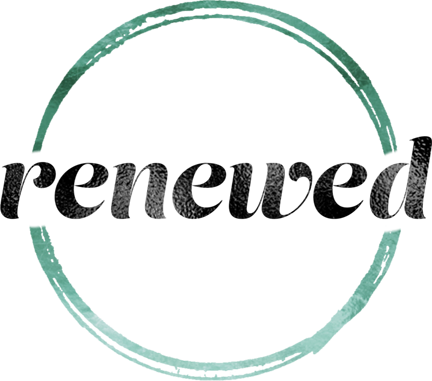make the most of your time: do nothing! just kidding, I want you to read
Image: You are worth more than your productivity sticker, from Praxis Studio
https://www.amazon.com/s?k=Praxis+Studio&i=handmade&search-type=ss&ref=bl_dp_s_web_0
So your library is closed, on account of the coronavirus (COVID-19) pandemic, with no telling as to when you will be able to reopen. Hopefully, you are able to work from home, and maybe catch up on reporting or other administrative duties, as I intend to do, or else you are finding innovative ways to deliver traditional services like story hour. Maybe your team will take advantage of this opportunity to learn new skills—indeed, it looks like there will be an explosion of webinars and online learning opportunities to help library personnel make the most of this time. These approaches make a lot of sense, as we are adapting to new circumstances, using technology to stay connected, and keeping busy.
But wait . . . not so fast! Now is an opportunity for us to talk about busy, or more precisely, “cultures of busy,” which emphasize action, and doing, over reflection. This is a concept I came to think of through my training in Agile, and concomitantly, Lean, two scientific management philosophies intent on maximizing efficiency, each problematic in their own rites, insofar as the direction of this post is going, but also, relevant. Through Agile, I learned to trim all “non-value adding” actions from workflow, these being steps that don’t benefit library patrons. For example, moving materials from one spot to another, labeling them, and leaving them be, until the work will actually get done. Or, I worked in a technical services environment wherein staff made work for themselves in labeling and flagging materials. They were busy, and felt good about keeping busy, but in the end, these activities did not create any value for our patrons.
With circulation at a stand-still, the above point is irrelevant, but how about using this time for training? Surely that is a productive use of time! Not necessarily, due to the principle of “half-life of information,” which states that you will remember only half of what you learn, for two weeks, to diminishing effects after that. Or something like that, case in point! Agile recommends “just-in-time,” versus “just-in-case,” learning, which coincides with adult learning theory, that we learn best when there is a relevant application at hand. Watch those videos about Excel formulas now, then wait six weeks to see how much they benefit you. Or, look them up just as you are actually in need of applying those formulas, and you will get the point.
I wish to suggest, instead, a more radical use of this time, one that is grounded in critical librarianship. Librarianship has long been characterized by its practical nature, which emphasizes efficiency and productivity, resulting in what has been called “un- or undertheorization.” Undertheorization, and busy-ness, prevent us from asking difficult questions, or, well, diving into theory. As per Sam Popowich in the essay, “ ‘Ruthless Criticism of All That Exists’: Marxism, technology, and library work,” “Under-theorization is both cause and effect of the robust if erroneous belief that libraries and library workers must and can be ‘neutral’” (Popowich, p. 49). Popowich goes on to say, “An undertheorized practice simply reproduces the inequalities and oppressions of the system even while it allows the system to keep functioning” (p. 62).
It seems that the coronavirus/COVID-19 pandemic is forcing us, as a society, to hit pause. I relish the news that the environment has benefitted from this disruption, insofar as air quality has improved, thanks to fewer emissions, and wildlife have returned to places usually populated by tourists. What about all of the time that workers are now able to spend with their families? For me, because I live in a rural area without access to internet, I’ve enjoyed time offline, and yes, thinking! I can’t help but think we may return to our libraries refreshed, if we have made the most of this time.
These examples represent the low-hanging fruits of critical librarianship, just having the space to reflect, or to not be so busy, but there is also opportunity now to dig into our professional literature. I think we all struggle to make space to read articles and texts, but here, now, is that chance. Besides taking in literature specifically pertinent to libraries, maybe this is a chance to grow in other directions. Another chapter, from the same book as the aforementioned essay by Popowich, describes how a group of librarians formed to read and discuss Michel Foucault’s The Order of Things, since the authors described, “we were all hungry for the kind of idea-based conversations that weren’t happening in our bureaucratic workplace” (Coysh, Denton, Sloniowski, p. 129). Besides the act of reading Foucault, the authors describe “reading and slow conversation as resistance” (Coysh, Denton, Sloniowski, p. 132).
Thus, my suggestion, during this time of upheaval and quiet, is for each of us to do some reading and writing. Maybe you don’t want to get into Marx or Foucault, but find what interests or challenges you, something without a “practical” nature. Each of the papers referenced above comes from the book, The Politics of Theory and the Practice of Critical Librarianship, edited by Karen P. Nicholson and Maura Seale, if you’d maybe like to start there.
Whatever your flavor, let’s resist our pre-programmed settings to be productive, and aim to be reflective, or introspective, and to dip our toes in theory. When we do get back to work, our practice will be the richer for it.
And hey, it looks like I’m not the only ones thinking along these lines: check out this article in The New Republic, “Against Productivity in a Pandemic.”

